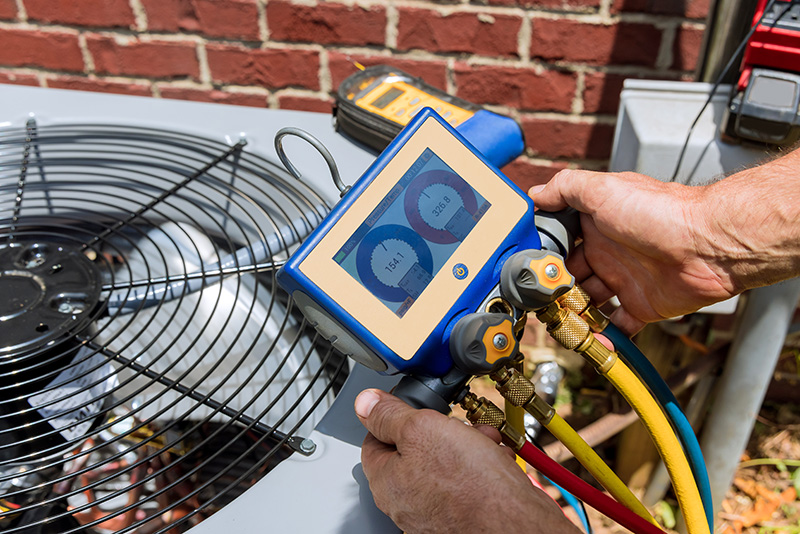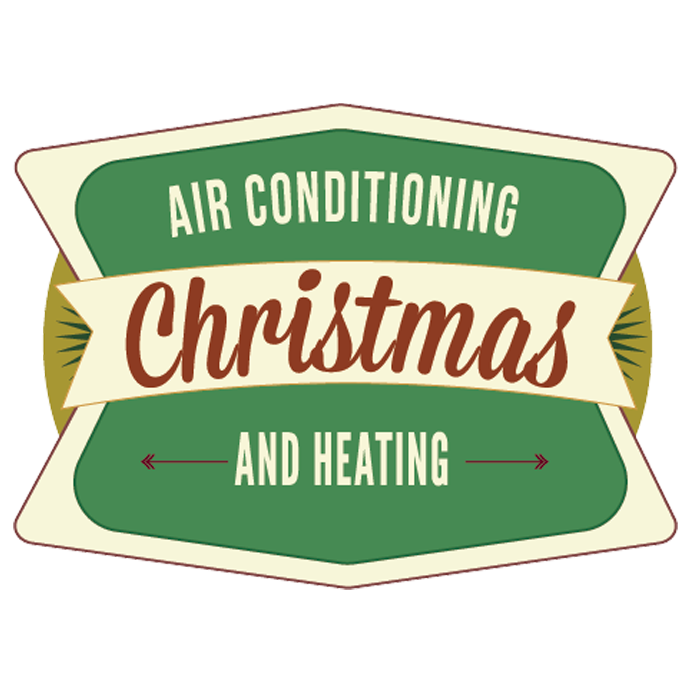HVAC Services for Your Home and Business
Heating, ventilation, and air conditioning (HVAC) systems are essential for indoor comfort and air quality. Professional HVAC services ensure systems run efficiently for residential or commercial properties, reducing energy costs and preventing unexpected breakdowns. Proper installation, regular maintenance, and timely repairs help extend the lifespan of HVAC systems and improve overall performance.
Christmas Air Conditioning, Heating, and Plumbing provides expert HVAC services tailored to the needs of homeowners and businesses. Professional HVAC technicians help customers maintain optimal indoor temperatures year-round, from system installation to ongoing maintenance and emergency repairs.

What Are HVAC Services and Why do they Matter?
HVAC services include installing, maintaining, and repairing heating, cooling, and ventilation systems. These services ensure that HVAC systems operate efficiently, providing reliable temperature control and indoor air quality.
What to Expect from a Professional HVAC Company like Christmas Air & Plumbing
A professional HVAC service begins with a detailed system inspection, where certified technicians assess heating, cooling, and ventilation components for wear, performance, and safety. Homeowners can expect clear communication about any issues found, as well as transparent pricing for recommended repairs or maintenance. Services typically include filter replacement, refrigerant level checks, duct inspection, thermostat calibration, and electrical component testing. Technicians will also provide recommendations for optimizing energy efficiency and indoor air quality. The goal of professional HVAC service is to deliver long-term system reliability, improved performance, and total peace of mind.
Importance of Hiring a Trusted HVAC Service Provider
Professional HVAC services help prevent costly breakdowns, improve energy efficiency, and enhance indoor air quality. Technicians inspect and service HVAC systems to identify potential issues before they lead to major repairs or system failures.
Energy Efficiency and Cost Savings
A well-maintained HVAC system consumes less energy, reducing monthly utility bills. HVAC professionals optimize system performance by cleaning components, checking refrigerant levels, and ensuring proper airflow. Regular servicing helps homeowners and businesses save on long-term energy costs.
HVAC Installation: Setting Up for Comfort and Efficiency
HVAC installation is a critical process that ensures a home or business has reliable heating, cooling, and ventilation. Proper installation improves system performance, energy efficiency, and overall comfort.
Why Hiring HVAC Service Pros for Installation Matters
Improper HVAC installation can lead to poor efficiency, frequent repairs, and higher energy costs. Certified technicians ensure systems are correctly sized, properly connected, and safely installed according to manufacturer guidelines and industry standards.
Factors to Consider Before Installing an HVAC System
Selecting the right HVAC system depends on several factors, including:
- Property size: Systems must be appropriately sized for efficient heating and cooling.
- Energy efficiency ratings: High-efficiency models reduce long-term operating costs.
- Budget: When choosing a system, initial costs versus long-term savings should be considered.

Overview of the Installation Process
The HVAC installation process typically involves:
- Assessing the property’s heating and cooling needs.
- Selecting the appropriate HVAC system.
- Removing any old equipment.
- Installing new ductwork (if necessary) and mounting the system.
- Connecting electrical components and testing the system for proper operation.
A professionally installed HVAC system ensures reliable performance, lower energy consumption, and a comfortable indoor environment.
HVAC Maintenance: Keeping Your System Running Smoothly
Regular HVAC maintenance helps prevent system failures, extends equipment lifespan, and improves energy efficiency. Routine servicing ensures that heating and cooling systems function optimally throughout the year.
Importance of Regular HVAC Maintenance
Scheduled HVAC maintenance reduces the risk of sudden breakdowns, improves air circulation, and maintains indoor comfort. Technicians check system components, clean filters, and inspect for any signs of wear or damage.
Common Maintenance Tasks
Key HVAC maintenance tasks include:
- Filter replacement: Dirty air filters restrict airflow and reduce efficiency.
- System inspections: Technicians check for leaks, damaged components, and refrigerant levels.
- Cleaning and lubrication: Parts such as coils, fans, and motors require cleaning to prevent buildup and overheating.
Benefits of Scheduled Maintenance Plans
Many homeowners and businesses choose scheduled maintenance plans to ensure their HVAC system remains in peak condition. Benefits include:
- Fewer unexpected repairs and costly breakdowns.
- Improved system efficiency and lower energy bills.
- Longer equipment lifespan and better indoor air quality.
Regular HVAC maintenance ensures uninterrupted comfort and efficiency throughout the year.
HVAC Service Plans vs. One-Time Repairs
When it comes to maintaining your HVAC system, you can choose between a one-time repair and enrolling in a service plan. One-time repairs are ideal for unexpected breakdowns or urgent issues, offering quick fixes but no ongoing support. In contrast, HVAC service plans provide scheduled maintenance at regular intervals, helping prevent costly repairs and extending system lifespan. Service plans often include priority scheduling, discounts on parts, and seasonal tune-ups. For homeowners who want year-round comfort and fewer surprise expenses, a service plan offers long-term value and reliability.
HVAC Repair: Fast and Reliable Solutions
HVAC systems can develop issues over time due to wear and tear, improper maintenance, or component failures. Professional HVAC repair services address problems quickly to restore comfort and prevent further damage.
Signs Your HVAC System Needs Repairs
Recognizing early warning signs can prevent costly breakdowns. Common indicators include:
- Uneven heating or cooling: Rooms feel too hot or cold despite thermostat settings.
- Unusual noises: Banging, rattling, or hissing sounds indicate mechanical issues.
- Poor airflow: Weak airflow may signal clogged ducts or a failing blower motor.
- Frequent cycling: If the system turns on and off too frequently, it may have a faulty sensor or compressor issue.
Common HVAC Problems
- Refrigerant leaks: Low refrigerant levels reduce cooling efficiency and can damage the compressor.
- Frozen evaporator coils: Restricted airflow or refrigerant issues can cause coils to freeze.
- Thermostat malfunctions: Inaccurate readings can lead to temperature inconsistencies.
- Wiring and electrical matters: Faulty connections can prevent the system from turning on or cause short cycling.
Emergency HVAC Service Available
Some HVAC issues require immediate attention, especially during extreme weather conditions. Professional HVAC technicians offer 24/7 emergency repair services to resolve urgent problems and restore system functionality.
Residential HVAC Systems: Comfort for Every Season
Residential HVAC systems are designed to provide reliable temperature control and indoor air quality for homes. Choosing the right system ensures comfort, energy efficiency, and cost savings.
Types of Residential HVAC Systems
Homeowners can choose from several HVAC system types, including:
- Central air conditioning and heating: Uses ductwork to distribute air throughout the home.
- Heat pumps: Provide heating and cooling by transferring heat between indoor and outdoor environments.
- Ductless mini-split systems: Offer flexible temperature control without the need for ductwork.
Choosing the Right System for Your Home
Factors to consider when selecting a residential HVAC system include:
- Home size and layout: Larger homes may require zoned HVAC systems for efficient temperature control.
- Energy efficiency ratings: Higher SEER (Seasonal Energy Efficiency Ratio) ratings result in lower energy consumption.
- Budget and long-term savings: Investing in a high-efficiency system can reduce future energy costs.
Enhancing Indoor Air Quality
Residential HVAC systems contribute to healthier indoor air through:
- Air filtration: Removes dust, pollen, and allergens.
- Humidity control: Prevents excessive moisture that can lead to mold growth.
- Ventilation improvements: Ensures proper airflow and fresh air circulation.
Affordable HVAC Service Options for Homeowners
Affordable HVAC service doesn’t mean sacrificing quality. Many professional providers offer flexible pricing, seasonal promotions, and customizable service plans to fit a range of budgets. Homeowners can reduce upfront costs by opting for basic maintenance packages, financing options for major repairs, or bundled services that include heating and cooling checkups. Investing in preventive care is often more cost-effective than waiting for a major breakdown. With transparent pricing and tailored solutions, affordable HVAC service ensures every homeowner can maintain comfort without straining their finances.
Commercial HVAC Systems: Reliable Climate Control for Businesses
Commercial HVAC systems are designed to handle more prominent spaces and higher occupancy levels. Proper installation and maintenance ensure efficient operation in offices, retail stores, warehouses, and other commercial buildings.
Key Differences Between Residential and Commercial HVAC Systems
- Size and capacity: Commercial systems are more extensive and designed for extended use.
- Complex zoning requirements: Businesses may require multiple zones to control temperatures in different areas.
- Ventilation needs: Proper air exchange is essential for indoor air quality in commercial settings.
Importance of Energy Efficiency in Commercial Buildings
Energy-efficient commercial HVAC systems help reduce operating costs and improve sustainability. Features such as programmable thermostats, smart controls, and high-efficiency components optimize performance.

Custom Solutions for Business HVAC Needs
Commercial HVAC services include:
- System design and installation: Tailored solutions based on business requirements.
- Routine maintenance plans: Preventative servicing to reduce downtime.
- Emergency repairs: Fast response times to minimize disruptions.
Types of HVAC Systems: Choosing the Best Option
Selecting the right HVAC system depends on property size, climate, and energy efficiency goals. Understanding different system types helps homeowners and business owners make informed decisions.
Central HVAC Systems
- It uses ductwork to distribute conditioned air.
- Ideal for more significant properties with multiple rooms.
Hybrid and Geothermal Systems
- Hybrid systems: Combine traditional HVAC with energy-efficient heat pumps.
- Geothermal systems: Use underground heat exchange for sustainable heating and cooling.
Ductless HVAC Systems
- Provides targeted heating and cooling without ducts.
- Suitable for homes or businesses with limited space.
Not sure where to start? Give us a call now at 469-919-9928
How to Choose the Right HVAC Services Provider
Selecting a qualified HVAC services provider ensures reliable system performance and long-term savings.
Credentials and Certifications to Look For
- Licensed and insured technicians.
- Certifications from industry organizations such as NATE (North American Technician Excellence).
- Experience with various HVAC brands and models.
Why Experience and Customer Service Matter
An experienced HVAC provider offers:
- Accurate system assessments and recommendations.
- Prompt and professional service.
- Long-term support for repairs and maintenance.
Questions to Ask Before Hiring an HVAC Contractor
- What is your experience with HVAC installation and repair?
- Do you offer maintenance plans?
- What warranties or guarantees do you provide?
When to Upgrade Your HVAC System
Replacing an outdated HVAC system improves energy efficiency, reliability, and indoor comfort.
Signs It’s Time for a Replacement
- Frequent breakdowns and costly repairs.
- Rising energy bills due to system inefficiency.
- Inconsistent heating and cooling.
Benefits of Upgrading to an Energy-Efficient System
- Lower energy consumption and utility costs.
- Improved temperature control and air quality.
- Enhanced durability and longer lifespan.
Long-Term Cost Savings and Environmental Benefits
Modern HVAC systems reduce carbon emissions and qualify for energy rebates, providing financial and environmental advantages.
Schedule Your HVAC Services Today
Ensure your HVAC system operates at peak performance with professional installation, maintenance, and repairs.
